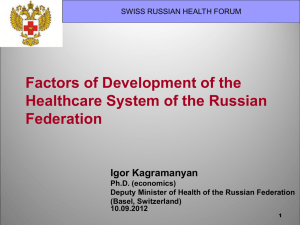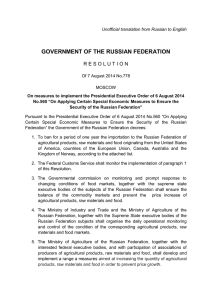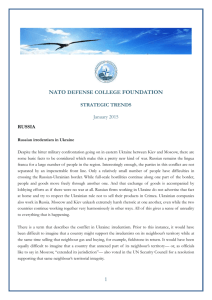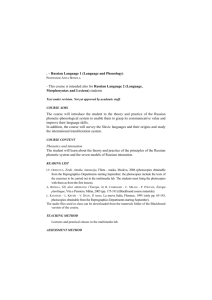here
advertisement
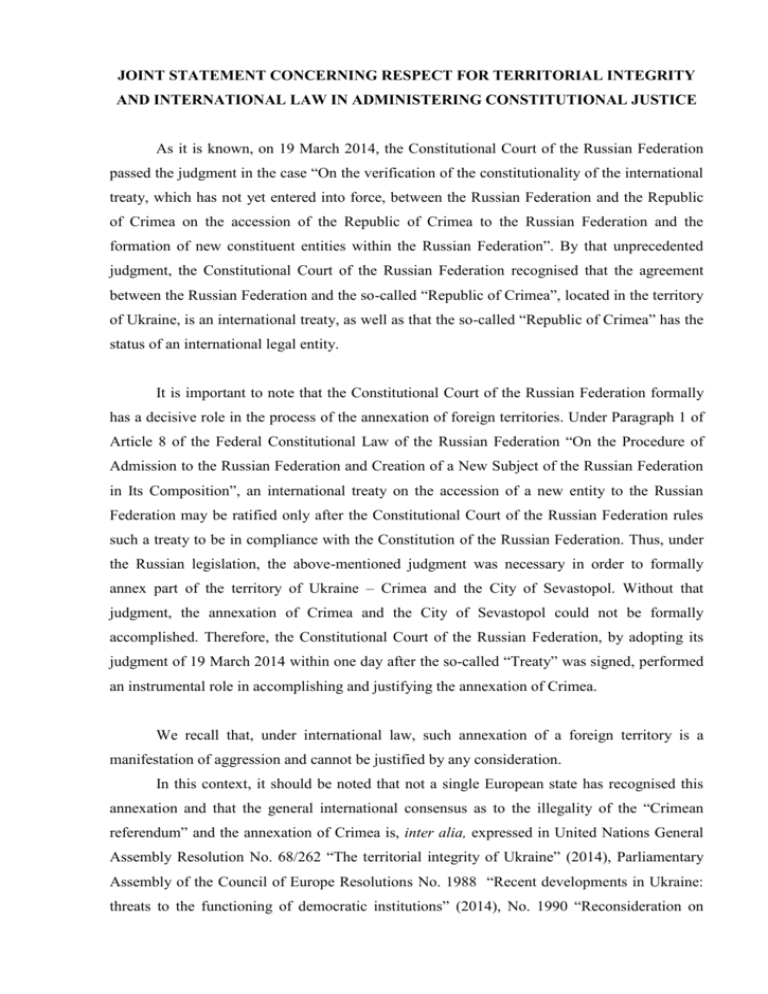
JOINT STATEMENT CONCERNING RESPECT FOR TERRITORIAL INTEGRITY AND INTERNATIONAL LAW IN ADMINISTERING CONSTITUTIONAL JUSTICE As it is known, on 19 March 2014, the Constitutional Court of the Russian Federation passed the judgment in the case “On the verification of the constitutionality of the international treaty, which has not yet entered into force, between the Russian Federation and the Republic of Crimea on the accession of the Republic of Crimea to the Russian Federation and the formation of new constituent entities within the Russian Federation”. By that unprecedented judgment, the Constitutional Court of the Russian Federation recognised that the agreement between the Russian Federation and the so-called “Republic of Crimea”, located in the territory of Ukraine, is an international treaty, as well as that the so-called “Republic of Crimea” has the status of an international legal entity. It is important to note that the Constitutional Court of the Russian Federation formally has a decisive role in the process of the annexation of foreign territories. Under Paragraph 1 of Article 8 of the Federal Constitutional Law of the Russian Federation “On the Procedure of Admission to the Russian Federation and Creation of a New Subject of the Russian Federation in Its Composition”, an international treaty on the accession of a new entity to the Russian Federation may be ratified only after the Constitutional Court of the Russian Federation rules such a treaty to be in compliance with the Constitution of the Russian Federation. Thus, under the Russian legislation, the above-mentioned judgment was necessary in order to formally annex part of the territory of Ukraine – Crimea and the City of Sevastopol. Without that judgment, the annexation of Crimea and the City of Sevastopol could not be formally accomplished. Therefore, the Constitutional Court of the Russian Federation, by adopting its judgment of 19 March 2014 within one day after the so-called “Treaty” was signed, performed an instrumental role in accomplishing and justifying the annexation of Crimea. We recall that, under international law, such annexation of a foreign territory is a manifestation of aggression and cannot be justified by any consideration. In this context, it should be noted that not a single European state has recognised this annexation and that the general international consensus as to the illegality of the “Crimean referendum” and the annexation of Crimea is, inter alia, expressed in United Nations General Assembly Resolution No. 68/262 “The territorial integrity of Ukraine” (2014), Parliamentary Assembly of the Council of Europe Resolutions No. 1988 “Recent developments in Ukraine: threats to the functioning of democratic institutions” (2014), No. 1990 “Reconsideration on 2 substantive grounds of the previously ratified credentials of the Russian delegation” (2014) and No. 2034 “Challenge, on substantive grounds, of the still unratified credentials of the delegation of the Russian Federation” (2015), European Parliament Resolution No. 2014/2699(RSP) “On Russian pressure on Eastern Partnership countries and in particular destabilisation of eastern Ukraine” and the OSCE Parliamentary Assembly Resolution “The continuation of clear, gross and uncorrected violations of OSCE commitments and international norms by the Russian Federation” (2015). The conclusions concerning the illegality of the “Crimean referendum” were also stated in the Opinion of the European Commission for Democracy through Law (Venice Commission) on “Whether the decision taken by the Supreme Council of the Autonomous Republic of Crimea in Ukraine to organise a referendum on becoming a constituent territory of the Russian Federation or Restoring Crimea’s 1992 Constitution is compatible with constitutional principles” (2014). We consider that the judgment of 19 March 2014 of the Constitutional Court of the Russian Federation amounts to a grave violation of international law (the universally recognised norms of international law, including those consolidated in the 1945 Charter of the United Nations, the 1970 Declaration on Principles of International Law concerning Friendly Relations and Cooperation among States in accordance with the Charter of the United Nations, the 1975 Final Act of the Conference on Security and Cooperation in Europe). Consequently, it may be concluded that this judgment is not in accordance with the fundamental principle of the rule of law, which obliges courts to comply with the general principles of law, the main principles of international law and the values of democratic constitutional order. We reiterate that the Statute of the Conference of European Constitutional Courts makes the full membership of European Constitutional Courts in this organisation conditional upon the conduct of judicial activities by its members in accordance with the principle of judicial independence, the fundamental principles of democracy, the rule of law and the duty to respect human rights (Paragraph 1(a) of Article 6). We, therefore, invite the members of the Conference of European Constitutional Courts to consider adopting the “Declaration on respect for territorial integrity and international law in administering constitutional justice”, which has been proposed by the Constitutional Court of Ukraine. 3 This Joint Statement is open for signature to the members of the Conference of European Constitutional Courts. Batumi, 10 September 2015 SIGNED BY:

